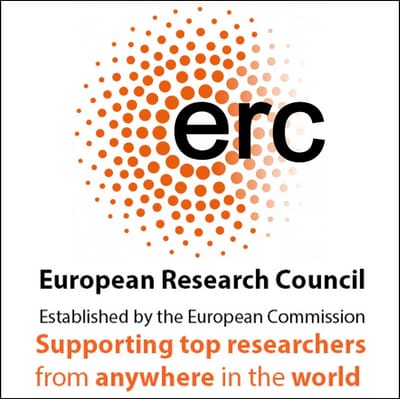Biomaterials and Tissue Engineering Research Group
Buckley Lab, Trinity College Dublin, Ireland
About Us
Conor Buckley is Professor In Biomedical Engineering and Director of the Trinity Centre for Biomedical Engineering. Buckley is a principal investigator (PI) in both the Trinity Centre for Biomedical Engineering and Science Foundation Ireland (SFI) national centre for Advanced Materials and Bioengineering Research (AMBER) Centre at Trinity College Dublin and Honorary Associate Professor in the Royal College of Surgeons in Ireland. His research focuses on novel biomaterials, biofabrication and cell-based strategies for tissue regeneration
Buckley is also a PI on several commercial projects developing biomaterials for peripheral nerve repair and bioprinting for next generation implantable devices and tissues for orthopaedic applications. He also has experience in the commercialisation of technology including the filing and licensing of patents in relation to porous biomaterials for nerve (PCT/EP2020/083811) and cartilage tissue regeneration (EP18215447.6). In 2022, he co-founded Altach, (https://altach.health/) a campus spin-out company pioneering off-the-shelf cartilage scaffolds to regenerate damaged knee joints.
Prof. Buckley’s laboratory has been recognised through notable honours and distinctions including the Irish Research Council (IRC) New Foundations Award, Engineers Ireland Biomedical Research Medal, European Society of Biomechanics S.M. Perren Award. He is a recipient of a Science Foundation Ireland Career Development Award (CDA, 2016), a European Research Council (ERC) Consolidator award to develop personalised medicine approaches to regenerate the intervertebral disc (2019) and an ERC Proof of Concept award for injectable biomimetic self-healing tissue adhesives (2024).

Our Research
Research Team
Dr. Jijo Thomas
Postdoctoral Research Fellow
Functionalised Injectable Extracellular Matrix Hydrogels
Dr. Xiaoyu Wang
Postdoctoral Research Fellow
Development and Assessment of Human-Origin Bioinks for Improved Wound Healing
Dr. Pedro Herreros Pérez
Postdoctoral Research Fellow
3D Printing of Collagen Lumens
Tugdual Haffner
PhD Candidate
3D Printing of Fibrous Electroconductive Biomaterials with Controlled Architectures for Peripheral Nerve Repair
Niamh Wilson
PhD Candidate
Microenvironmental Profiling, Predictive Screening and In Silico Modelling for Personalised Regeneration of the Intervertebral Disc
Tara Ní Néill
PhD Candidate
Injectable Gene Activated Biomaterials to Modulate Regeneration and Inflammation of the Intervertebral Disc
Jake McDonnell
PhD Candidate
The Oestrogen-Adipokine Axis and Its Influence on Vertebral Cartilaginous End-Plate Calcification and Porosity Formation in Pre-Menopausal Females
Valerie Kersten
PhD Candidate
Functionalised Injectable Extracellular Matrix Hydrogels for Intervertebral Disc Regeneration
Taylor Murphy
MAI Candidate
Development of 3D Printed Extracellular Matrix Bioadhesive Nerve Wraps for Tissue Repair
Shane O'Casey
MAI Candidate
Analysing Nutrient Transport Patterns in 3D-Printed Intervertebral Disc Replicas: A Computational Study
Diya Diji Pressa Anilkumar
MSc Candidate
Injectable Antimicrobial Bioadhesives to Enhance Nerve Guidance Conduit Implantation and Integration
Twitter Feed
Funding & Partnerships
ERC-INTEGRATE
Project Summary: Lower back pain is a global epidemiological and socioeconomic problem. Biomaterial and cell-based therapies have been pursued for the treatment of degenerated intervertebral disc (IVD), with a number of clinical trials underway. However, the degenerated intervertebral disc has a distinct environment (e.g. altered oxygen, glucose, acidity, inflammatory cytokine levels) that is unique to an individual (i.e. patient-specific) and will ultimately determine the likelihood and rate at which regeneration can occur. A “one size fits all” approach will lead to the failure to demonstrate efficacy of advanced therapies, as they are not being designed or personalised for individual patients. This proposal envisions a future whereby advanced gene activated cell therapies are personalised (targeting regeneration or modulating inflammation) to treat back pain based on knowing the individuals unique disc microenvironment. This will be achieved through profiling of individual patient disc microenvironmental factors, with in vitro screening and in silico modelling to design cell therapies and predict regeneration outcomes (Aim 1) combined with the development of tailored functionalised gene activated biomaterials (Aim 2), to enhance matrix formation and modulate the inflammatory processes (Aim 3). Gene-based therapy offers several advantages over direct delivery of proteins or small molecules, among them the possibility of sustained efficacy and endogenous synthesis of growth factors or suppression of inflammatory factors and pathways. The platform technology (personalised gene activated biomaterials to regulate regeneration and inflammation) and knowledge (tailoring cell therapies to suit patient-specific microenvironments) generated through this research are beyond the current state-of-the-art and will provide a significant transformative scientific and clinical step change opening new horizons in minimally-invasive therapeutic strategies.
Funded by: European Research Council (ERC), Consolidator Award (CoG) (2020-2025)
Grant ID: 864104

Contact
- Trinity Centre for Biomedical Engineering, Trinity Centre for Biomedical Engineering, Trinity Biomedical Sciences Institute
Lab Travels
Vacancies

Join our lab
We are always interested in expanding our research group. If you are interested in applying for funding through the Irish Research Council (www.research.ie), Science Foundation Ireland (www.sfi.ie) or Marie Curie programmes (https://marie-sklodowska-curie-actions.ec.europa.eu/) please contact me directly (conor.buckley@tcd.ie) to discuss.


